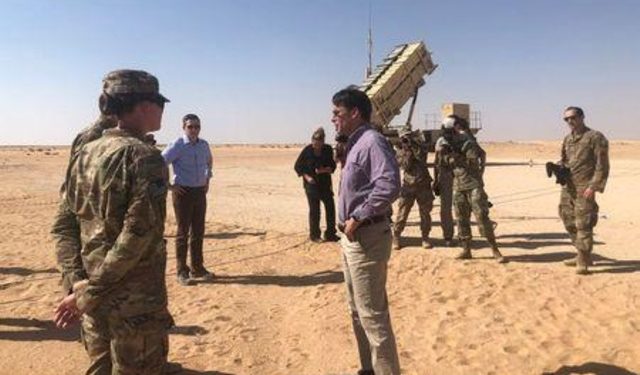
The Saudi regime concealed the total value of a new military agreement he concluded with a local unit of an American company amid suspicions of new corruption.
It is known about the deals of Saudi that included major financial corruption in the absence of oversight and transparency.
The Kingdom announced the signing of an agreement with Saudi Arabia’s Raytheon, the local unit of the American arms maker Raytheon, to localize the maintenance of the Patriot anti-missile system as part of what it said was part of efforts to boost the defense industry sector and the Kingdom’s broader economy.
However, it was not disclosed the number of jobs covered by the project or the value of the agreement or the location of any work that was transferred or localized.
Crown Prince Mohammed bin Salman claims he is seeking to diversify the kingdom’s economy away from dependence on oil exports and Riyadh wants to produce or assemble half of its defense needs locally with the goal of creating 40,000 jobs for Saudis by 2030.
The Kingdom is among the five largest defense spending countries in the world. It is one of several US allies who use the Patriot anti-surface missile system and responds to ballistic missiles and other threats.
“The signing of this agreement comes in light of the authority’s endeavor to develop the military industries and research and technology sector, support it locally and promote it,” said the official news agency, quoting Ahmed bin Abdulaziz Al-Ohali, governor of the General Authority for Military Industries.
The Saudi Arabia Raytheon website stated that the company supports the Kingdom’s 2030 economic vision by creating job opportunities for Saudi skilled people in the defense, aviation and cyber security sectors through partnerships with the Saudi private sector and local universities.
The Saudi regime failure is dedicated to military armament, after paying hundreds of billions of international and American arms companies, in particular, to obtain anti-missile and anti-missile weapons to protect the kingdom, which was not achieved.
Ansar Allah al-Houthi group regularly targets the kingdom’s installations, whether oil or military, and was the largest targeting of months ago to the two largest Aramco facilities in Abqaiq and Khurais that led to stopping the text of Saudi oil production.
In front of this large arsenal, the Patriot air defense system was unable to protect the Kingdom’s security.
Among the most prominent reasons for the failure of the Saudi response to the Houthi attacks, is that the American air defense systems used by the Kingdom – especially the “Patriot” – can brilliantly destroy an ICBM, but they are unable to launch a missile launched from near.
As the Houthis use the small type of “drones” aircraft, which makes it difficult to see them with the naked eye even from close range, in addition to not detecting them from radars and Saudi devices, because these devices are designed to detect large and fast aircraft.
What the Kingdom has reached in its war with the Houthis is that it “failed” to get rid of these militias, “despite the passage of four years since the war began, and despite the immensity of its military arsenal, which is not comparable to the Houthis’ capabilities.
This arsenal is considered a “formal” one, and it is a “commodification channel for the relationship between the United States of America and Saudi Arabia.”